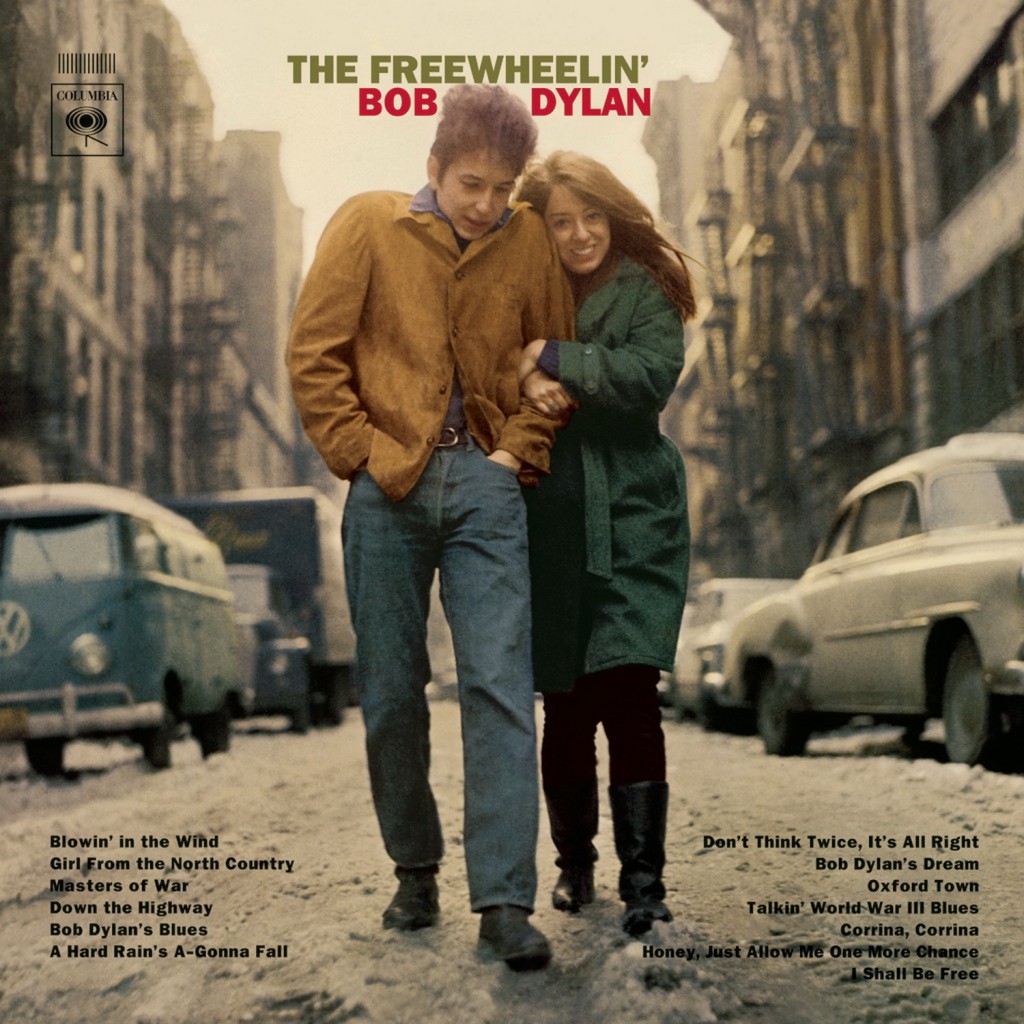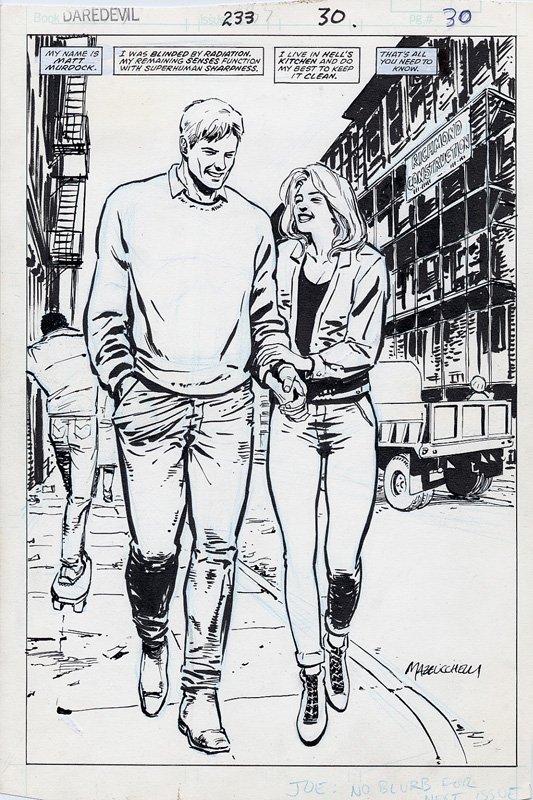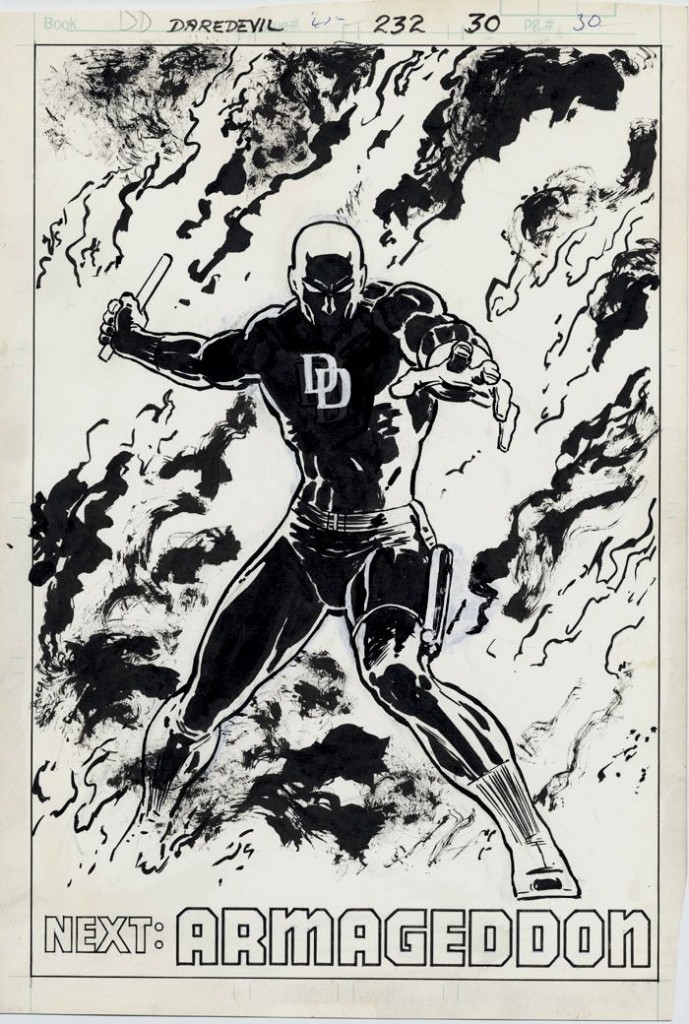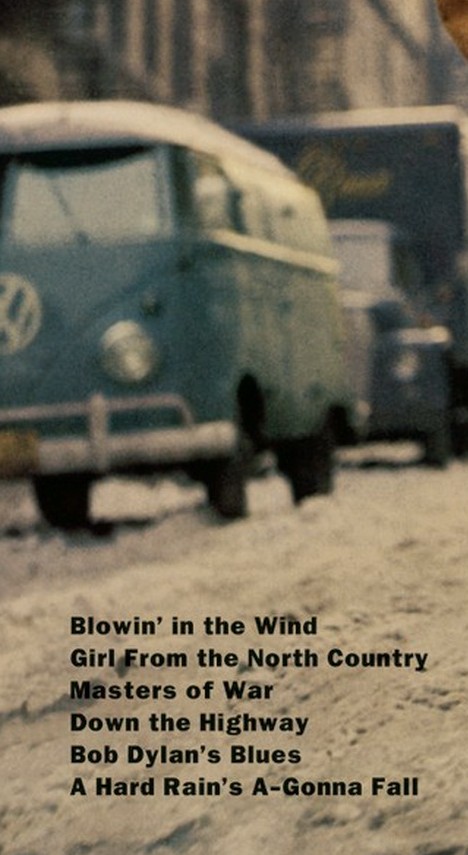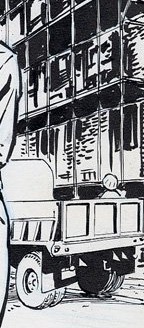The Comics and Music roundtable index is here.
______________
In his notes on Frank Miller and David Mazzucchelli’s Born Again, Brian Cronin writes:
“And it all ends with a likely Bob Dylan reference, so how much better can you get?”
Cronin is of course donning the cap of coyness here. The final page of Born Again isn’t a “likely” Dylan reference, it’s a bare faced homage to the cover of The Freewheelin’ Bob Dylan—the ultimate evocation of tenderness for a certain generation of record collectors; the knight in lusterless armor finally getting his girl.
Karen Page’s one time junkie whore has kicked her addiction and is now in the arms of her destined love or as Wikipedia helpfully tells us:
Critic Janet Maslin summed up the iconic impact of the cover as “a photograph that inspired countless young men to hunch their shoulders, look distant, and let the girl do the clinging”.
Of this description I have my doubts. Perhaps the word “reinspired” would work better here. It seems to me that women have been depicted (by men) clinging to men long before Dylan and his photographer got their hands on this quintessential moment.
“Don’t Think Twice, It’s All Right” seems overly sentimental musically but correct lyrically for much of this comic, the song apparently written by Dylan when Rotolo left him to study in Italy. The album cover captures that point in time when she had returned safe to his arms in a trench coat and two sweaters, the fire escapes and tenements like a pastoral landscape in the background.
Born Again may be seen as an apocalyptic text divining this fleeting state of heaven…
…a paradisaical condition always on the edge of disaster; a state of perfect goodness where stories are perpetuated when no more need be told—a testament to the prescience of Miller and Mazzucchelli. The comics boom of the late 80s, that period which ushered in Miller’s Daredevil, was followed inevitably by bust and then capitulation; the present day sales figures befitting nothing less than high end toilet paper. The superhero form now even rejected by that one time font of spandex adulation, the Eisners (though this last rejection is most likely an aberration born of the judges doing the nominations.)
But such an interpretation would be to mistake apocalypse (a revelation of god’s divine will) for prophecy. The two may be intermingled but should be seen as distinct.
Suze Rotolo wasn’t a junkie who needed saving, that part is clear. No, that junkie whore was the America of sex and drugs, that 60s VW van of lust and freedom gone mad.
The new Jerusalem is one where strength and patriotism has triumphed over the nuclear threat; the hard rain has ceased to fall. The world is in the process of being reconstructed just as the sign (a tribute to Mazzucchelli’s own partner, Richmond Lewis) on the right hand side of the comics page indicates. Nuke (as coarse a symbol as any) has been defeated by that bastion of American patriotism, Captain America—all this as illusory as the life and death of a secondary character in a second tier superhero title; everything as ephemeral as Matt Murdock and Bob Dylan’s happiness.
Karen Page—manipulated to the end by her gods—”died” in 1998. Suze Rotolo died of lung cancer in 2011. That evocation of joy, as transient as a fading photograph, now extinguished; that VW van of protest now disappeared, replaced by the dumpster truck of progress, capitalism, and acquiescence.

